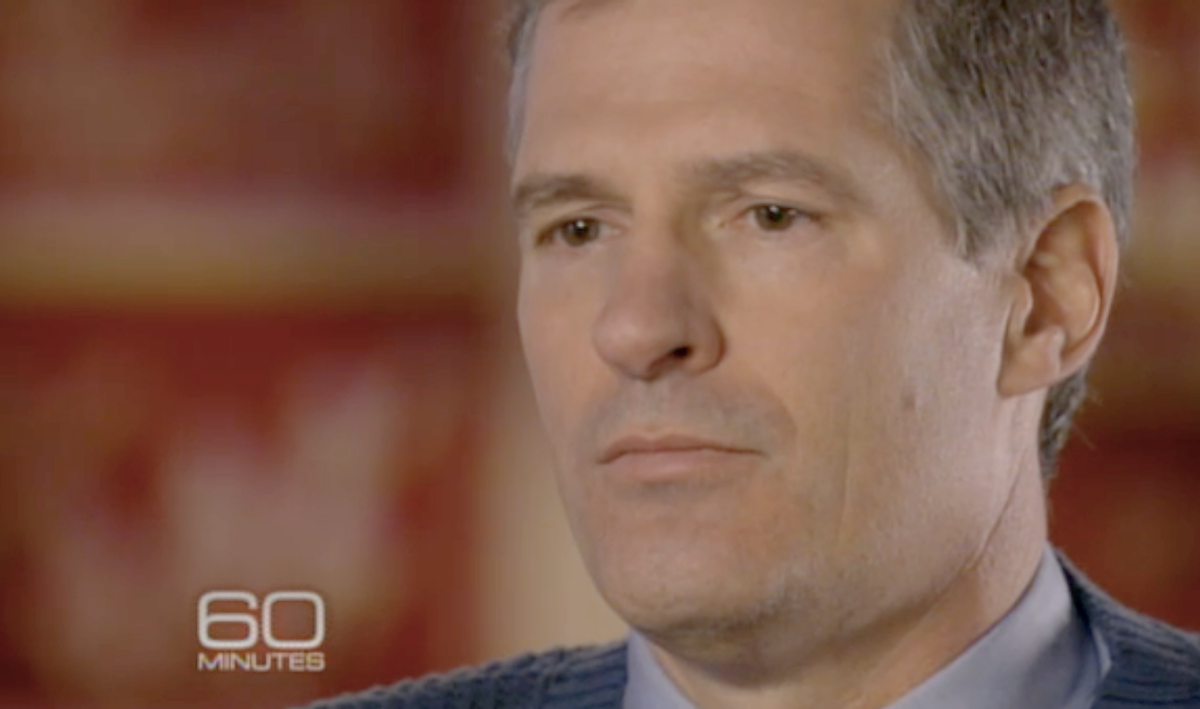Every president, every prime minister, every CEO, every powerful pundit was once an innocent child. That may sound obvious, but whether the person is a great leader or a loathsome despot or someone somewhere in between, when you look at him on the evening news, it's unlikely you're thinking about a 10-year-old boy, heading off to summer camp on Cape Cod. But 40 years ago, ambitious Republican senator from Massachusetts Scott Brown was such a boy. And there, he says, that young boy was sexually abused at the hands of a counselor who threatened to kill him if he ever revealed their secret.
In his forthcoming memoir, "Against All Odds: My Life of Hardship, Fast Breaks, and Second Chances," Brown makes a powerful case for his book's hardscrabble title. He details the beatings he and his mother received at the hands of his stepfather, describing how at age 6 his stepfather "pounded my head, my back, and plowed into me with those massive knuckles and flat, sandpapery palms until I was shaking and sobbing and snot was pouring out of my nose" and threatened to kill him. He discusses being 8 and having a local teen menace him with a knife and order him to perform a sexual act -- and how he escaped. And he writes of a counselor at his religious camp who sexually abused him. "I was standing there with my pants down and he came right up next to me and asked me if I needed help, and then he reached out his hand," he writes, adding that the man told him "that if I told anybody, ever, he'd hurt me badly." In an interview for Sunday's "60 Minutes," Brown cryptically reveals, "Fortunately, nothing was ever fully consummated, so to speak, but it was certainly, back then, very traumatic." Surely adding to the trauma was the counselor's warning that, as Brown says, "If you tell anybody I'll kill you. I will make sure nobody believes you." And so, Brown says he kept the secret all these years, telling Lesley Stahl that his mother will learn of the incident for the first time when she reads his book.
Brown, who is looking more and more like a man who'd like to be president -- and who might just be moderate enough to wrest the Republican nomination from the clutches of the Tea Party -- certainly knows that his private life is the subject of ruthless scrutiny. To come out now with a frank retelling of his youth, with its forays into dysfunction, victimhood and eventual petty crime, is a savvy way of heading off any National Enquirer bombshells. No one in public life can come forward with such painful and intimate revelations without a degree of strategy. But such a tactic doesn't always engender support. Commenters on CBS's "60 Minutes" website were teeming with cynicism Thursday, offering insights like, "Real men suck it up. They don't go on national TV to play a victim card," "Is there anything politicians won't do to be reelected? Pathetic," "OK Scott, you get your free pity pills," and, of course, "Don't believe one word he says." Well done, Internet, you've made it a banner week for victim blaming.
For all the attention childhood sexual abuse has received in the last few years -- tragically, because it's such a common experience -- the stigma of it remains. It's a particularly taboo subject for men, thanks to the ease with which ignorant, petty minds leap from child abuse to "Dude, that's so gay." And, unfortunately, plenty of people can't wrap their heads around the idea of a victim who isn't a tragic mess curled up on a shrink's couch. If you're not crying and broken and damaged-looking enough, it didn't happen. They put qualifiers on abuse, deciding that if it wasn't "consummated," or it was just some "groping," it wasn't bad enough to qualify as important.
So for men as well-known and so very different as Gabriel Byrne, Tyler Perry and Scott Brown to stand up and say that they experienced it is an act of courage, whatever you believe of their work or politics. If they just wanted pity pills, there's probably an easier way to get them. There's still, even now, too high a potential price to be paid in coming forward. As Brown says on "60 Minutes," "When people find people like me at that young vulnerable age, who are basically lost, they make you believe that no one will believe you. That's what happens when you're a victim. You're embarrassed. You're hurt." And decades later, that embarrassment, hurt and disbelief can persist long after a traumatized little boy has left Cape Cod.



Shares